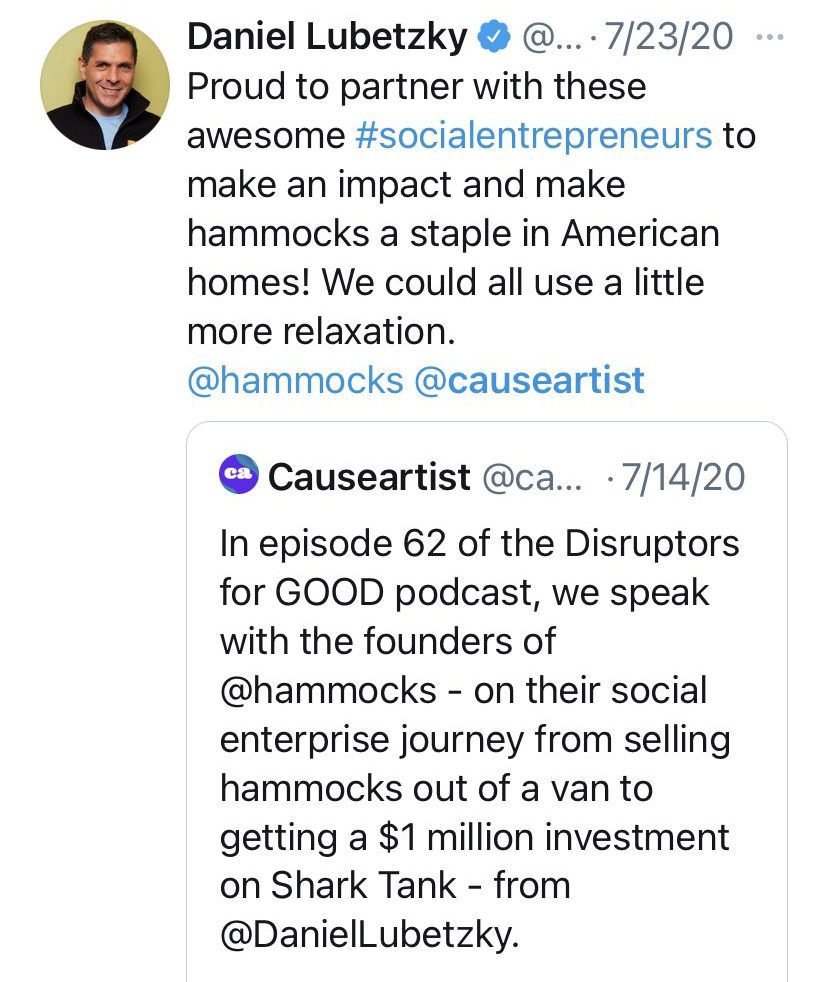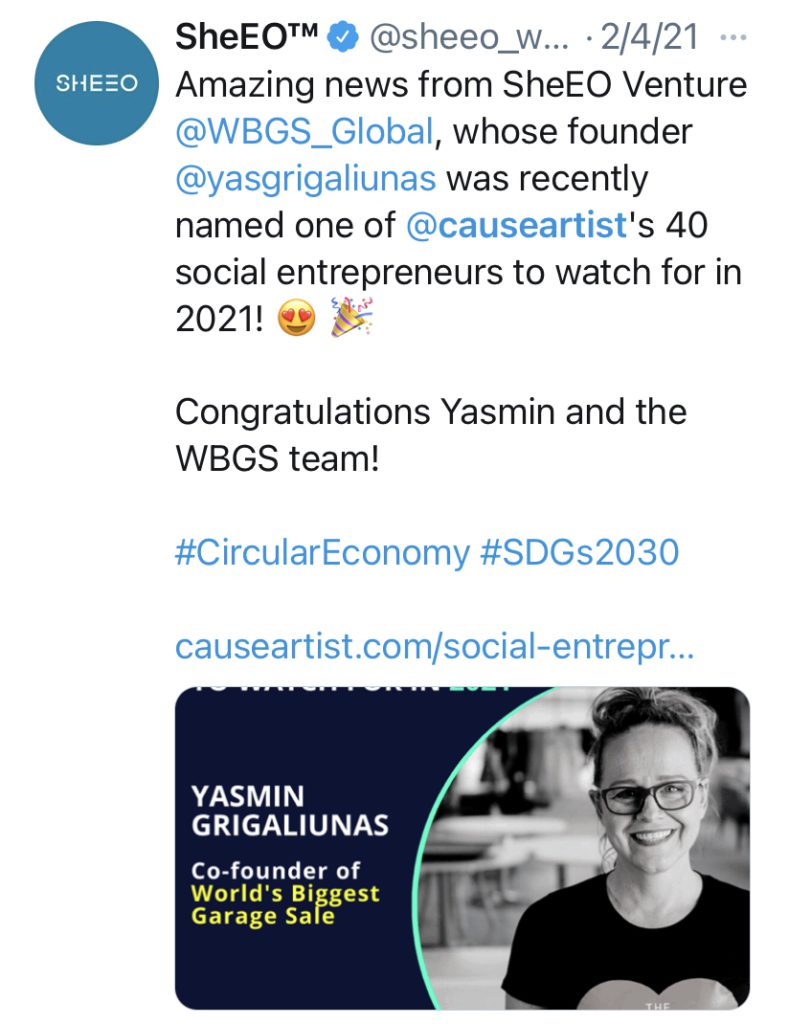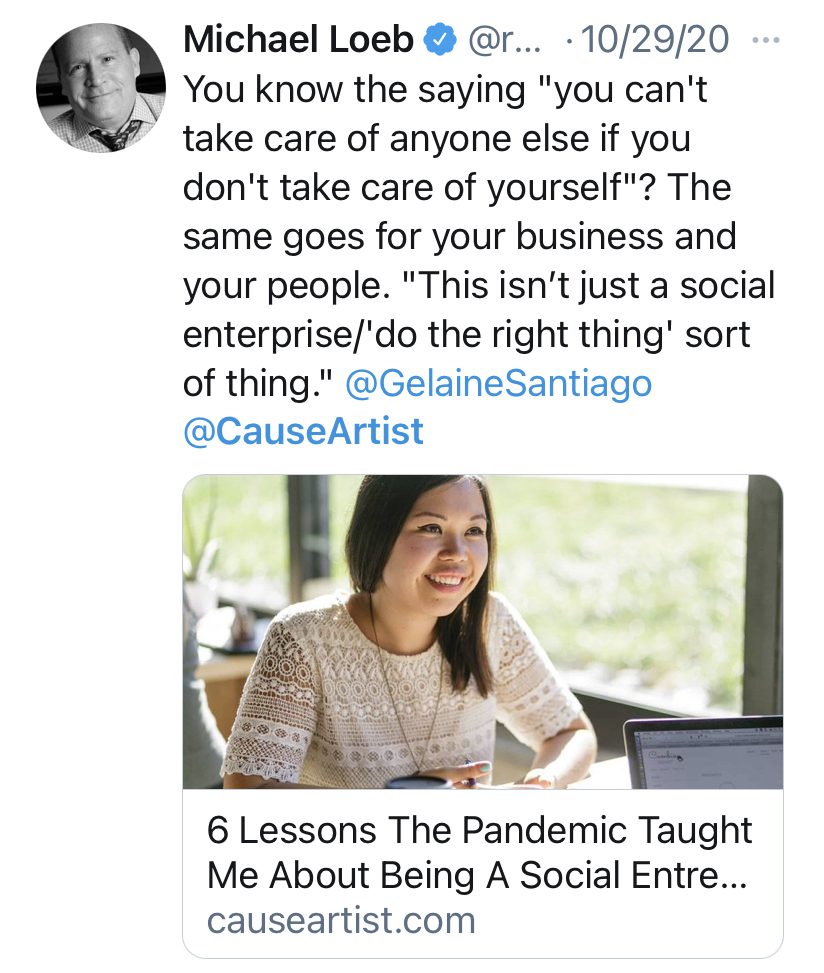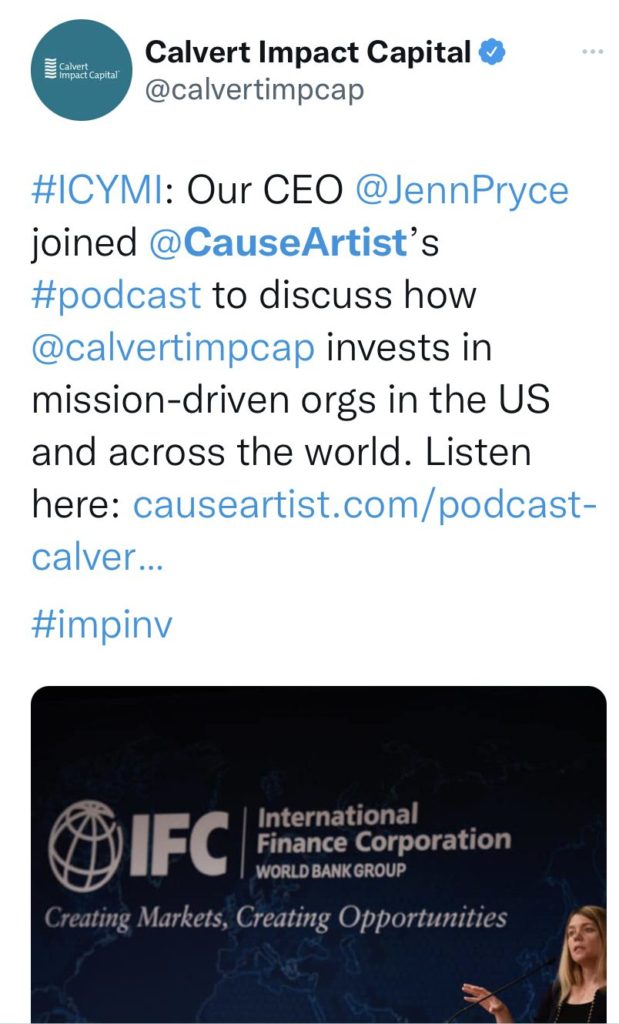








Causeartist helps you discover insights and trends into impact industries such as – regenerative farming, sustainable fashion, impact investing, impact web3, climate tech, and sustainable travel.

“Causeartist brings together stories from such a diverse group of people working in social impact. From banking to fashion and consumer goods, it’s a great source of positive news and learning about change makers.”
Garik Himebaugh // Founder of Eco-Stylist

“To be honest, I rarely open emails that aren’t work-related, but I open every one from Causeartist because I usually learn about something new that I need to know about in my industry.”
Hayley Santell // Founder of MADI Apparel

“Causeartist reminds me that there are tens of thousands of bright lights shining to hold back the darkness. I am always energized by the stories of positive change from a wide range of areas beyond what I work in – fashion, travel, technology, investing and so much more.”
Dean Cycon // Founder of Deans Beans

“My favorite thing about Causeartist is the email newsletter. It always has good stuff because Grant has the pulse of social enterprise locked down. If Causeartist says its important – then it is.”
Kenton Lee // Founder of Because International

“To be honest, I rarely open emails that aren’t work-related, but I open every one from Causeartist because I usually learn about something new that I need to know about in my industry.”
Melissa Barash // Chief of Staff of Mission Driven Finance

“When The Causeartist Weekly drops in my Inbox, I know when opened I will find a balanced showing of stories and opinions highlighting diverse founders, innovations, and resources from all over the world in a succinct and authentic way.”
Spencer Martin // CEO of Clew
